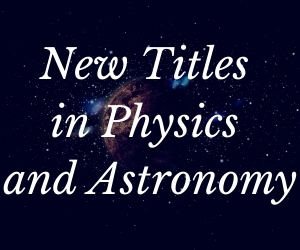The main theme of the workshop is to discuss problems of nucleosynthesis in the Universe, specifically in connections to the unstable atomic nuclei, which would play a crucial role in explosive burning processes. This subject is strongly backed up by an increasing interest in studying unstable nuclei in nuclear physics.
The subjects include primordial nucleosynthesis, Hot-CNO cycle and rapid-proton process, neutrino-induced nucleosynthesis, equation of state of neutron-rich matter etc.
Contents:
- The γ-Process in Supernovae (B S Meyer et al)
- Recent Advances in Primordial Nucleosynthesis (R N Boyd)
- Fermion Dynamical Symmetries, Nuclear Masses, and their Astrophysical Implications (D H Feng)
- New Generation Calculations of Beta Decay Far From Stability and Astrophysics (H V Klapdor-Kleingrothaus)
- Impact of the Nuclear Equation of State on Models of Rotating Neutron Stars (F Weber & N K Glendenning)
- Signatures of Inhomogeneous Cosmologies; Intermediate-Mass Nucleosynthesis and Radioactive Nuclear Beams (T Kajino)
- Study of the Key Reaction 8Li(α,n)11B for the Primordial Nucleosynthesis (S Kubono et al)
- The p-Process in Type-II Supernovae (M Arnould et al)
- The 12C(α, γ)16O Cross Section at Low Energies (F C Barker & T Kajino)
- Explosive Nucleosynthesis in Type II Supernovae (K Nomoto et al)
- Helium Burning in Some Astrophysical Scenarios (M Gai)
- Production of Nuclei on the Proton Drip Line for 31 ≤ Z ≤ 37 (D J Morrissey et al)
- Properties of Dense Supernova Matter and Hot Neutron Stars at the Birth (T Takatsuka)
- The Neutrino Process and Neutrino γ-Process (W C Haxton)
- Coulomb Dissociation for Nuclear Astrophysics (G Baur)
- Some New Developments in Polarized Radioactive Beams (S S Hanna)
- and other papers
Readership: Nuclear physicists and astrophysicists.























